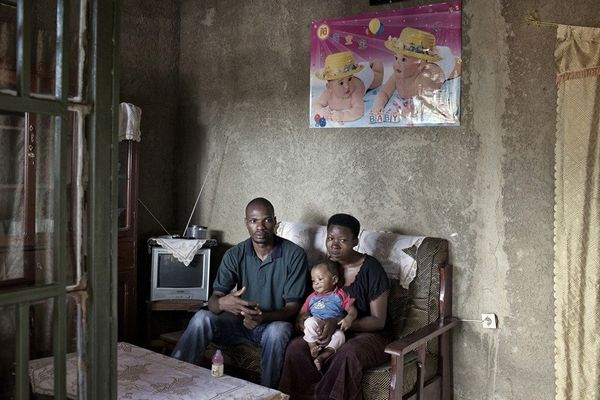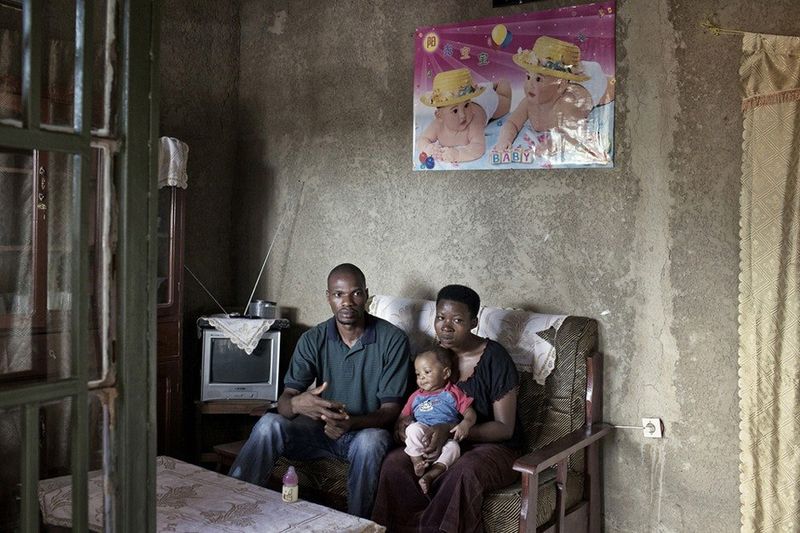Life After Genocide in Rwanda
-
Published7 Nov 2017
-
Author
Carol Allen-Storey relays the story of James, pictured here with his wife and baby son, who was wrongly incarcerated during the Rwanda genocide, but has since rebuilt his life.
Carol Allen-Storey relays the story of James, pictured here with his wife and baby son, who was wrongly incarcerated during the Rwanda genocide, but has since rebuilt his life.
This image is from my project, Fractured Lives, which is about reconciliation and forgiveness in Rwanda. Between April and July 1994, the country witnessed 100 days of mass killings, rampant rape, and other horrific acts carried out by the Hutu extremist paramilitary organisation, Interahamwe. An estimated one million unarmed Tutsi civilians were slaughtered. Rwanda and its citizens have made remarkable progress in re-establishing normality in the ensuing years, yet communities remain divided and are still dealing with the social, psychological, and economic consequences of the genocide.
In 2013, NGO International Alert commissioned me to work on a project about the work they do in Rwanda - uniting a fragmented society with an emphasis on addressing the trauma and the economic void that exists. It was imperative that the project was inclusive, and so Fractured Lives deals with all individuals affected by the genocide including ex-prisoners, survivors, and even some of the children born after the genocide had ended as well.
James, pictured here with his wife, Faina, and baby son, was 15 when the genocide war began. He told me how the Interahamwe forced its way into his family’s home, demanding to see their Hutu identity cards because they suspected the family might be Tutsi. James was falsely accused of murder and subsequently incarcerated, spending more than a decade in jail before being reunited with his family.
International Alert runs what it calls ‘dialogue clubs’ in which young people receive intensive trauma counselling. In these sessions participants are able to confront their inner demons by sharing their experiences and feelings with others. They are given help and support in re-integrating into society, including being offered microfinance so they have an opportunity to earn money, which creates a sense of self-worth. James went through the programme and said that without it he would have struggled to eliminate the hatred and bitterness he felt. He has since been able to create a home for himself, he has a family, and he has been able to put his grief in the past.
I took this image in April 2013 during Rwanda’s national month of remembrance in which the Rwandese remember those murdered in the genocide. It was taken inside James’ home. Even though there was poverty, everything was neatly placed, and James was so chivalrous. You think of how he has suffered, and yet he has all this love in his heart.
I take my time when photographing and I don’t take my camera out straight away. I first thank the people for allowing me to be there and try to find out a little about their lives. You end up getting closer to reality than when you rush it. It’s also my responsibility as a photographer to have ethics and morality. I’m so aware of the dignity I must give the people I photograph. I only use available light and never set anything up - what you see is what is there. I’m always humbled by who these people are, and what they have done in their lives.
--------------
Carol Allen-Storey is an award-winning photojournalist based in London who specialises in chronicling humanitarian and social issues. Follow her on Twitter and Instagram.
Gemma Padley is a freelance writer and editor on photography, based in the UK. Follow her on Twitter and Instagram.
--------------
Behind the Picture tells the story of an image by a photographer from the Photographic Museum of Humanity’s online community.

